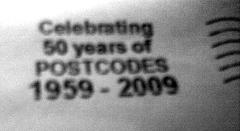Zlatan Todori : R.I.P. Terry Pratchett
Give a man a fire and he's warm for the day. But set fire to him and he's warm for the rest of his life.
 Terry Pratchett dies, aged
66.
It looks like his last novel will be The Long Utopia, the fourth book in the
Long Earth series, co-written with Stephen Baxter.
Terry Pratchett dies, aged
66.
It looks like his last novel will be The Long Utopia, the fourth book in the
Long Earth series, co-written with Stephen Baxter.
DON T THINK OF IT AS DYING, said Death. JUST THINK OF IT AS LEAVING EARLY TO AVOID THE RUSH.Terry Pratchett, Good Omens: The Nice and Accurate Prophecies of Agnes Nutter, Witch Thank you for everything you wrote. Each and every line was a gem, with another gem hidden inside.
 I read a lot this year - I'll write more about that and reflections on
goodreads in another post - but most of the things I read weren't published
in 2013. (I should also write a bit about my thoughts on e-readers). However,
it seems I have enough to write about 2013's novels to make a round-up post
worthwhile, so here we go.
This year, crime author Robert Galbraith published his first novel The
Cuckoo's Calling. I'd never have heard of it if Galbraith was not outed as an
alias for Joanne "JK" Rowling. Clues that Rowling was working on a detective
story exist as early as a Guardian preview article in
2012
for her last novel, The Casual Vacancy. Further hints, for me, that this was
no first-time author were the taglines from Ian Rankin and Val McDermid on the
cover, writers of a calibre I'd be surprised a new author could attract.
However I don't know whether they were on the pre-unveiling cover or not.
Rowling was upset be outed, having enjoyed the freedom to write without the
baggage of expectation that she is subject to. I hope she's pleased: prior to
her unmasking the novel was warmly received by the (admittedly relatively
small) number of people who read it.
And a very good novel it is too. It starts with a genre clich of a
grizzled, meloncholy detective, Mr. Cormoran Strike, in an upstairs office with
a neon light flickering through the window, but fleshes the story out
both forwards - a client, a mysterious death - and backwards - how did Mr.
Strike end up in that upstairs office - living out of it, no less? As is
traditional for the genre there's a very clever twist.
What I really enjoyed about Cormoran Strike was Galbraith/Rowling moving
quickly from Chandler-esque everyman to a well fleshed-out, complex
protagonist, intertwining the development of the character with the unfolding
of the wider plot. I'm looking forward to the sequel, expected in 2014.
A second surprise favourite this year was Lauren Beukes' time-tripping crime
story The Shining Girls. A monsterous murder of women somehow finds a room
in Chicago that lets him travel through time (or perhaps the room finds him).
He uses this facility to stalk and murder a set of Shining Girls: women who,
for one reason or another, literally 'shine' in his perception of them. One
such woman survives his first attack and decides to try and find out who
attacked her, and why.
The crimes are described in a brutal fashion which - from a distance - resemble
the sometimes glorified violence for which crime fiction is sometimes criticised,
but the focus of the story is very much on the victims: they are fully fleshed
out characters and each death is felt by the reader as a genuine tragedy.
I discovered Beukes when her earlier novel Zoo City was included in a Humble
eBook bundle. On reading The Shining Girls I felt that the novel deserved to
be more widely known than I would expect it to be trapped in the ghetto of
genre fiction, so I was pleased to discover that the very mainstream Richard
and Judy Book Club discovered it.
In established author news, Terry Pratchett, having adopted speech recognition
for writing (to combat his debilitating Alzheimer's) has seemingly managed to
accelerate his rate of production and squeezed out at least two this year: The
Long War with Stephen Baxter is the sequel to 2012's The Long Earth which I
very much enjoyed, but it really felt like "difficult second novel" to me.
Hopefully there'll be a third.
Raising Steam, the 40th Discworld novel, was an enjoyable romp around the
concept of steam trains, featuring the relatively new Moist von Lipwig who has
managed to become one of my favourite Discworld characters. I can't think of
much more to say about the novel, really. It's a Discworld novel, probably not
the best introduction to the series for a new reader, but will give a reader
familiar with the franchise everything they expect, and possibly no more.
Iain Banks sadly died this year, shortly after the publication of his
last novel, The Quarry. It's sat on my hardback shelf for the time being. I
couldn't bring myself to read it in 2013. I did read his last SF offering from
the year prior, The Hydrogen Sonata. Sadly, yet coincidentally, both of these
books examine the nature of living and dying, The Quarry in particular from
the point of view of a terminal cancer sufferer. I have a small backlog of
unread Banks fiction which I want to take my time over with.
Finally, whilst not really a book, I thoroughly enjoyed the BBC's 2013
adaptation of Neil Gaiman's Neverwhere. Natalie Dormer wrote a
piece
on the making of the drama which should serve as a good introduction. At the
time of writing, most of the programmes have disappeared from iPlayer, but I
would be surprised if this wasn't released commercially at some point.
I read a lot this year - I'll write more about that and reflections on
goodreads in another post - but most of the things I read weren't published
in 2013. (I should also write a bit about my thoughts on e-readers). However,
it seems I have enough to write about 2013's novels to make a round-up post
worthwhile, so here we go.
This year, crime author Robert Galbraith published his first novel The
Cuckoo's Calling. I'd never have heard of it if Galbraith was not outed as an
alias for Joanne "JK" Rowling. Clues that Rowling was working on a detective
story exist as early as a Guardian preview article in
2012
for her last novel, The Casual Vacancy. Further hints, for me, that this was
no first-time author were the taglines from Ian Rankin and Val McDermid on the
cover, writers of a calibre I'd be surprised a new author could attract.
However I don't know whether they were on the pre-unveiling cover or not.
Rowling was upset be outed, having enjoyed the freedom to write without the
baggage of expectation that she is subject to. I hope she's pleased: prior to
her unmasking the novel was warmly received by the (admittedly relatively
small) number of people who read it.
And a very good novel it is too. It starts with a genre clich of a
grizzled, meloncholy detective, Mr. Cormoran Strike, in an upstairs office with
a neon light flickering through the window, but fleshes the story out
both forwards - a client, a mysterious death - and backwards - how did Mr.
Strike end up in that upstairs office - living out of it, no less? As is
traditional for the genre there's a very clever twist.
What I really enjoyed about Cormoran Strike was Galbraith/Rowling moving
quickly from Chandler-esque everyman to a well fleshed-out, complex
protagonist, intertwining the development of the character with the unfolding
of the wider plot. I'm looking forward to the sequel, expected in 2014.
A second surprise favourite this year was Lauren Beukes' time-tripping crime
story The Shining Girls. A monsterous murder of women somehow finds a room
in Chicago that lets him travel through time (or perhaps the room finds him).
He uses this facility to stalk and murder a set of Shining Girls: women who,
for one reason or another, literally 'shine' in his perception of them. One
such woman survives his first attack and decides to try and find out who
attacked her, and why.
The crimes are described in a brutal fashion which - from a distance - resemble
the sometimes glorified violence for which crime fiction is sometimes criticised,
but the focus of the story is very much on the victims: they are fully fleshed
out characters and each death is felt by the reader as a genuine tragedy.
I discovered Beukes when her earlier novel Zoo City was included in a Humble
eBook bundle. On reading The Shining Girls I felt that the novel deserved to
be more widely known than I would expect it to be trapped in the ghetto of
genre fiction, so I was pleased to discover that the very mainstream Richard
and Judy Book Club discovered it.
In established author news, Terry Pratchett, having adopted speech recognition
for writing (to combat his debilitating Alzheimer's) has seemingly managed to
accelerate his rate of production and squeezed out at least two this year: The
Long War with Stephen Baxter is the sequel to 2012's The Long Earth which I
very much enjoyed, but it really felt like "difficult second novel" to me.
Hopefully there'll be a third.
Raising Steam, the 40th Discworld novel, was an enjoyable romp around the
concept of steam trains, featuring the relatively new Moist von Lipwig who has
managed to become one of my favourite Discworld characters. I can't think of
much more to say about the novel, really. It's a Discworld novel, probably not
the best introduction to the series for a new reader, but will give a reader
familiar with the franchise everything they expect, and possibly no more.
Iain Banks sadly died this year, shortly after the publication of his
last novel, The Quarry. It's sat on my hardback shelf for the time being. I
couldn't bring myself to read it in 2013. I did read his last SF offering from
the year prior, The Hydrogen Sonata. Sadly, yet coincidentally, both of these
books examine the nature of living and dying, The Quarry in particular from
the point of view of a terminal cancer sufferer. I have a small backlog of
unread Banks fiction which I want to take my time over with.
Finally, whilst not really a book, I thoroughly enjoyed the BBC's 2013
adaptation of Neil Gaiman's Neverwhere. Natalie Dormer wrote a
piece
on the making of the drama which should serve as a good introduction. At the
time of writing, most of the programmes have disappeared from iPlayer, but I
would be surprised if this wasn't released commercially at some point.
| Series: | Discworld #12 |
| Publisher: | Harper |
| Copyright: | 1991 |
| Printing: | February 2008 |
| ISBN: | 0-06-102061-3 |
| Format: | Mass market |
| Pages: | 350 |
 Brett points at a Guardian article on Terry Deary
and his opinion that libraries are no longer relevant. In fact, Mr. Deary
goes further: he thinks libraries are destroying the book business by
preventing authors, publishers, and bookshops from getting paid.
From the article:
Brett points at a Guardian article on Terry Deary
and his opinion that libraries are no longer relevant. In fact, Mr. Deary
goes further: he thinks libraries are destroying the book business by
preventing authors, publishers, and bookshops from getting paid.
From the article:
As one of the most popular library authors his books were borrowed more than 500,000 times during 2011/12 Deary will have received the maximum amount possible for a writer from the Public Lending Right scheme, which gives authors 6.2p every time one of their books is borrowed, up to a cap of 6,600. "If I sold the book I'd get 30p per book. I get six grand, and I should be getting 180,000. But never mind my selfish author perception what about the bookshops? The libraries are doing nothing for the book industry. They give nothing back, whereas bookshops are selling the book, and the author and the publisher get paid, which is as it should be. What other entertainment do we expect to get for free?" he asked.He's making several of the same false claims that people in the media business always make whenever they see people enjoying any kind of cultural products without paying for them.
 here's my weekly list of RC bugs that I've worked on:
here's my weekly list of RC bugs that I've worked on:
 a rather lazy bugsquashing week but with a little cheating a managed to get
at at least 7 RC bugs:
a rather lazy bugsquashing week but with a little cheating a managed to get
at at least 7 RC bugs:
 Ugh, in the last year and a half I've only posted once. With the move to
Ireland, starting a new job, and then using too much Google+, I forgot
about this blog thing.
So, to start with something easy, I'll tell you about some films I watched
recently. This weekend I had a marathon of films, after sometime without
watching any, I watched two at home and two at my favourite cinema in Dublin:
the IFI, which I recommend to anyone
living here.
First, on Friday, I watched Brazil, the 1985
classic from Terry Gilliam. It was a long overdue obligation to watch it, and
some discussions with a friend about cinema made me finally do it. It was an
amazing film. Among the many memorable scenes, and cinephile winks, I liked the
one copying the famous Odessa steps sequence. The problems related to its US
release reminded me a bit of the problems with the edition of Touch of evil, although
in the case of Brazil, what the big studio did to the film was to butcher
it.
On Saturday I continued on the Gilliam streak and re-watched 12 Monkeys, which I had
forgotten completely. Another great film, with a clearly bigger budget, it does
not rely on the money but in the plot, art, and acting to be memorable. Also, I
love the main theme, a tune from Astor Piazzolla called "Suite Punta del
Este".
Just after finishing the film, I read that some people from the local Couch Surfing group were meeting at the
IFI to see one of the many features of the Polish film festival that took place
this weekend. So I went and saw A short film
about killing, a powerful and shocking movie about the death penalty.
Considered by many to be one of the most horrifying depictions of a killing
(two, in fact), it didn't shock me as much as some other films had done, maybe
it was because of the cinema overdose... Anyway, it was another must-see. IMDB asserts that the Polish
government suspended the death penalty in Poland for five years after the
release of this film, but I could not find sources to confirm this.
This morning I woke up pretty early, which is completely uncommon for me on
a Sunday. So I decided to use the tickets offered by the IFI for a
pre-screening that I had assumed I would not use, since I had to be in the
cinema at 11! This time it was an Irish documentary about Bernadette
Devlin, called Bernadette:
Notes on a political journey. It was really interesting, even if I had
never heard about this important figure of Ulster politics in the sixties.
Sadly, because of my ignorance on the topic (and some northern accents that I
have trouble understanding), I missed many parts of the film. In any case, it
has increased my appetite to know more about the Troubles, which had
started when I visited the Republican neighbourhood of Belfast, specially Falls road.
Tags: Life, Planet Debian
Ugh, in the last year and a half I've only posted once. With the move to
Ireland, starting a new job, and then using too much Google+, I forgot
about this blog thing.
So, to start with something easy, I'll tell you about some films I watched
recently. This weekend I had a marathon of films, after sometime without
watching any, I watched two at home and two at my favourite cinema in Dublin:
the IFI, which I recommend to anyone
living here.
First, on Friday, I watched Brazil, the 1985
classic from Terry Gilliam. It was a long overdue obligation to watch it, and
some discussions with a friend about cinema made me finally do it. It was an
amazing film. Among the many memorable scenes, and cinephile winks, I liked the
one copying the famous Odessa steps sequence. The problems related to its US
release reminded me a bit of the problems with the edition of Touch of evil, although
in the case of Brazil, what the big studio did to the film was to butcher
it.
On Saturday I continued on the Gilliam streak and re-watched 12 Monkeys, which I had
forgotten completely. Another great film, with a clearly bigger budget, it does
not rely on the money but in the plot, art, and acting to be memorable. Also, I
love the main theme, a tune from Astor Piazzolla called "Suite Punta del
Este".
Just after finishing the film, I read that some people from the local Couch Surfing group were meeting at the
IFI to see one of the many features of the Polish film festival that took place
this weekend. So I went and saw A short film
about killing, a powerful and shocking movie about the death penalty.
Considered by many to be one of the most horrifying depictions of a killing
(two, in fact), it didn't shock me as much as some other films had done, maybe
it was because of the cinema overdose... Anyway, it was another must-see. IMDB asserts that the Polish
government suspended the death penalty in Poland for five years after the
release of this film, but I could not find sources to confirm this.
This morning I woke up pretty early, which is completely uncommon for me on
a Sunday. So I decided to use the tickets offered by the IFI for a
pre-screening that I had assumed I would not use, since I had to be in the
cinema at 11! This time it was an Irish documentary about Bernadette
Devlin, called Bernadette:
Notes on a political journey. It was really interesting, even if I had
never heard about this important figure of Ulster politics in the sixties.
Sadly, because of my ignorance on the topic (and some northern accents that I
have trouble understanding), I missed many parts of the film. In any case, it
has increased my appetite to know more about the Troubles, which had
started when I visited the Republican neighbourhood of Belfast, specially Falls road.
Tags: Life, Planet Debian
 AltOS 1.0 TeleMini support and a host of new features
Bdale and I are pleased to announce the release of
AltOS version 1.0.
AltOS is the core of the software
for all of the Altus Metrum products. It
consists of cc1111-based microcontroller firmware and Java-based
ground station software.
AltOS Firmware TeleMini support, Kalman Filtering and more
Support for the new
TeleMini
altimeter is included in version 1.0 along with a wealth of other new
features:
AltOS 1.0 TeleMini support and a host of new features
Bdale and I are pleased to announce the release of
AltOS version 1.0.
AltOS is the core of the software
for all of the Altus Metrum products. It
consists of cc1111-based microcontroller firmware and Java-based
ground station software.
AltOS Firmware TeleMini support, Kalman Filtering and more
Support for the new
TeleMini
altimeter is included in version 1.0 along with a wealth of other new
features:




 This is just a quick note to say:
Next week, I am going to be at:
This is just a quick note to say:
Next week, I am going to be at:
 My goals for the conference:
My goals for the conference:
 Went to the Chicago Symphony yesterday to
see Regina Carter as well as Jazz wunderkind
Esperanza Spalding perform one
seat each with their respective bands.
Regina Carter was presenting
material from her current record 'Reverse Thread'. This was a real nice set
of African-themed world music featuring Carter herself on violin, Yacouba
Sissoko on kora, Will Holshouser on accordion, Chris Lightcap on bass and
Alvester Garnett on drums. Some of pieces were really, really nicely done
and I particularly enjoyed Holshouser on the accordion.
After the break,
Esperanza Spalding come on for
her Chamber Music Society'. Lovely setup with Spalding on acoustic bass and
vocals, Leo Genovese on piano/keyboards, Sara Caswell on violin, Lois Martin
on viola, Jody Redhage on cello, the always impressice Terry Lyne Carrington
on drums and Leala Cyr on backing vocals (and one co-lead in a really nice
duet with Spalding). This was clearly more experimental and a chunk of the
audience left during the act. But there is room for improvided chamber music,
and it was a good modern music act. And Spalding is really quite impressive
and I will gladly go and see her again.
Went to the Chicago Symphony yesterday to
see Regina Carter as well as Jazz wunderkind
Esperanza Spalding perform one
seat each with their respective bands.
Regina Carter was presenting
material from her current record 'Reverse Thread'. This was a real nice set
of African-themed world music featuring Carter herself on violin, Yacouba
Sissoko on kora, Will Holshouser on accordion, Chris Lightcap on bass and
Alvester Garnett on drums. Some of pieces were really, really nicely done
and I particularly enjoyed Holshouser on the accordion.
After the break,
Esperanza Spalding come on for
her Chamber Music Society'. Lovely setup with Spalding on acoustic bass and
vocals, Leo Genovese on piano/keyboards, Sara Caswell on violin, Lois Martin
on viola, Jody Redhage on cello, the always impressice Terry Lyne Carrington
on drums and Leala Cyr on backing vocals (and one co-lead in a really nice
duet with Spalding). This was clearly more experimental and a chunk of the
audience left during the act. But there is room for improvided chamber music,
and it was a good modern music act. And Spalding is really quite impressive
and I will gladly go and see her again.
 For some reason, 60G of free space on my notebook suddenly turned into 60G of movies. Bownian motion, perhaps.
Unfortunately, in this particular case, I absolutely don't like to let a movie (or book, for that matter) unfinished, so I watched Fear and Loathing in Las Vegas (directed by Terry Gilliam, starring Johnny Depp; so far, so good) from start to finish. After the first half hour I started wondering if the plot is going to start. The reptile party in the hotel lobby was a short entertaining interlude, but to the end, no plot manifests. I'm left wondering what this was all about.
Quantum of Solace on the other hand is good entertainment. Probably not one of the best, but still worth watching if you like her majesty's secret agent.
Going back to movies I've seen before is something I like to do as well, so having another evening in company with the unforgettable Leon (the professional) was time well spent.
I didn't give up on Terry Gilliam yet and met The Fisher King. While the story is completely different, it does feel a bit similar to 12 Monkeys in terms of set design and atmosphere.
Speaking of Terry Gilliam: I'm curious how his current attempt at The Man Who Killed Don Quixote turns out; so far I've only seen him losing this movie in the documentary about the aborted last attempt: Lost in La Mancha.
On the funny side, Dogma and especially The Wedding Crashers were worth watching. If you have to pick one, it's the latter one. Dogma feels a bit forced in some places.
Returning back to the opening theme: seeing Inland Empire was another evening that left me confused. The main story is interesting enough, but I have to admit that I just couldn't follow where all the other sub plots tie in, or if they even are supposed to. And I'm not only talking about the rabbit family (those felt a bit like the Middle of the Film in The Meaning of Life and were quite in order.)
For some reason, 60G of free space on my notebook suddenly turned into 60G of movies. Bownian motion, perhaps.
Unfortunately, in this particular case, I absolutely don't like to let a movie (or book, for that matter) unfinished, so I watched Fear and Loathing in Las Vegas (directed by Terry Gilliam, starring Johnny Depp; so far, so good) from start to finish. After the first half hour I started wondering if the plot is going to start. The reptile party in the hotel lobby was a short entertaining interlude, but to the end, no plot manifests. I'm left wondering what this was all about.
Quantum of Solace on the other hand is good entertainment. Probably not one of the best, but still worth watching if you like her majesty's secret agent.
Going back to movies I've seen before is something I like to do as well, so having another evening in company with the unforgettable Leon (the professional) was time well spent.
I didn't give up on Terry Gilliam yet and met The Fisher King. While the story is completely different, it does feel a bit similar to 12 Monkeys in terms of set design and atmosphere.
Speaking of Terry Gilliam: I'm curious how his current attempt at The Man Who Killed Don Quixote turns out; so far I've only seen him losing this movie in the documentary about the aborted last attempt: Lost in La Mancha.
On the funny side, Dogma and especially The Wedding Crashers were worth watching. If you have to pick one, it's the latter one. Dogma feels a bit forced in some places.
Returning back to the opening theme: seeing Inland Empire was another evening that left me confused. The main story is interesting enough, but I have to admit that I just couldn't follow where all the other sub plots tie in, or if they even are supposed to. And I'm not only talking about the rabbit family (those felt a bit like the Middle of the Film in The Meaning of Life and were quite in order.)
 I guess having only the Japanese version of Tetsuo and not understanding anything might not have helped, but on the other hand there isn't all that much dialogue. Tetsuo is one of those movies I find difficult to judge; while it has some great moments, I also found it to be a bit long in some parts. Very good sound track, though. YMMV, I guess.
If you like the Discworld novels by Terry Pratchett, you may want to have a peak at Terry Pratchett's The Colour of Magic, which I found quite well made (... and where I once again found that I don't have a good memory for faces, although in the end I remembered where I saw Twoflower's face just before reading the name in the closing credits ...) A bit disappointing, in contrast, was Terry Pratchett's Hogfather: to me, it proves that a movie should have some distance to the book, since what works when written down doesn't necessarily work on the screen. I quite liked Michelle Dockery as Susan, though.
I guess having only the Japanese version of Tetsuo and not understanding anything might not have helped, but on the other hand there isn't all that much dialogue. Tetsuo is one of those movies I find difficult to judge; while it has some great moments, I also found it to be a bit long in some parts. Very good sound track, though. YMMV, I guess.
If you like the Discworld novels by Terry Pratchett, you may want to have a peak at Terry Pratchett's The Colour of Magic, which I found quite well made (... and where I once again found that I don't have a good memory for faces, although in the end I remembered where I saw Twoflower's face just before reading the name in the closing credits ...) A bit disappointing, in contrast, was Terry Pratchett's Hogfather: to me, it proves that a movie should have some distance to the book, since what works when written down doesn't necessarily work on the screen. I quite liked Michelle Dockery as Susan, though.

 So after Royal Mail shut down useful community websites causing MP comments on the idiocy of Royal Mail, I was rather surprised to get this little thing in the post today:
So after Royal Mail shut down useful community websites causing MP comments on the idiocy of Royal Mail, I was rather surprised to get this little thing in the post today:
 That s a postmark advert for Celebrating 50 years of POSTCODES 1959-2009 . So this is what Royal Mail does with some of the money it makes from its claimed monopoly on postcode databases: it spends it on ink to celebrate postcodes in the bit where they can t sell adverts.
After the postcode-takedown, I suggested deleting postcodes from all our co-op s websites. Instead, another member has persuaded me to contribute to something like free the postcode, which I first saw on CycleStreets blog.
As well as slapping its customers, Royal Mail is also currently taking on its workers who are campaigning for sustainable jobs and against the recent increase in bullying and harassment cases. I already send most of my letters, invoices and so on electronically since our three nearest post offices closed last year.
I ve noticed Edinburgh Bicycle Co-op switching to DPD and Terry Lane suggesting more online use. Are those good approaches? How are you adapting to the postal delays? Have you put your postcode into free the postcode or a similar site?
That s a postmark advert for Celebrating 50 years of POSTCODES 1959-2009 . So this is what Royal Mail does with some of the money it makes from its claimed monopoly on postcode databases: it spends it on ink to celebrate postcodes in the bit where they can t sell adverts.
After the postcode-takedown, I suggested deleting postcodes from all our co-op s websites. Instead, another member has persuaded me to contribute to something like free the postcode, which I first saw on CycleStreets blog.
As well as slapping its customers, Royal Mail is also currently taking on its workers who are campaigning for sustainable jobs and against the recent increase in bullying and harassment cases. I already send most of my letters, invoices and so on electronically since our three nearest post offices closed last year.
I ve noticed Edinburgh Bicycle Co-op switching to DPD and Terry Lane suggesting more online use. Are those good approaches? How are you adapting to the postal delays? Have you put your postcode into free the postcode or a similar site?
 While Linux and Debian are plenty of programs for backing up your system, things change when you need a backup system for a common desktop user. In this area there is a lot of room for improvement, as programs for KDE and GNOME are years behind what programs for Windows and Mac OS X are offering.
While Linux and Debian are plenty of programs for backing up your system, things change when you need a backup system for a common desktop user. In this area there is a lot of room for improvement, as programs for KDE and GNOME are years behind what programs for Windows and Mac OS X are offering.Next.